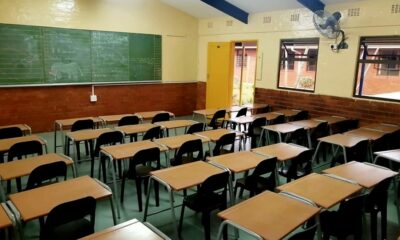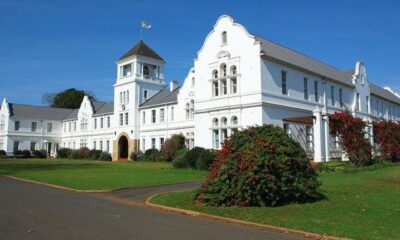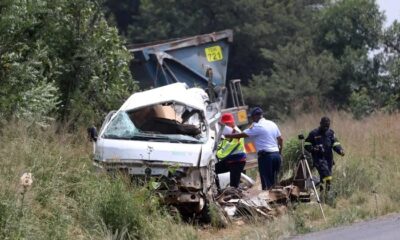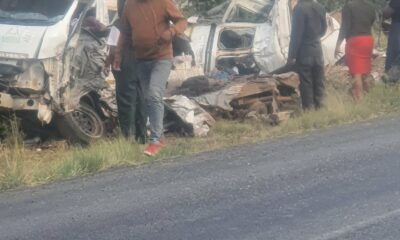News
Shockwaves in Gauteng: No-Fee Schools Hit with Huge Utility Debts and Threats of Disconnection

When “No-Fee” Schools Get an Unexpected Bill Shock
Imagine being told your school, which has always been considered “no-fee” and supported by government funds, suddenly has to pay millions in unpaid electricity and water bills – bills that you never signed up for. This nightmare has become a reality for hundreds of Gauteng’s most vulnerable schools, igniting fear and frustration among educators, parents, and communities.
The Gauteng Education Department had promised to cover utility bills for no-fee schools starting in 2024, taking a huge financial burden off these struggling institutions. But after racking up more than R300 million in debt, the department quietly reversed course in early 2025, handing responsibility – and a mountain of arrears – back to the schools themselves.
From Support to Shock: How Did We Get Here?
In a move that caught many by surprise, Gauteng Education issued a directive that from April 1, 2025, no-fee schools would be responsible for paying their municipal accounts, including water and electricity. The catch? The department passed on not just current bills but historical debts stretching back years, leaving schools on the hook for millions they didn’t cause.
Take Eldorado Park, where 34 schools are now scrambling to deal with massive backlogs. At Eldomaine Secondary, SGB member Charis Pistorius explains the heart-wrenching dilemma:
“If you give me R410,000 a year but my utility bills are R1 million, I’m left with a gap of nearly R700,000. How do we make that up in a community with 45% unemployment and people struggling to feed their families?”
This isn’t just about numbers on paper – it’s about schools that serve communities already facing deep socio-economic challenges. These are schools where learners often come from homes where survival is the priority, not fundraising.
Real Lives, Real Consequences
At Noordgesig High, the pressure is so intense that some classrooms still lack electricity months into the crisis. SGB member Ravern Martin describes the stakes:
“We paid R27,000 last month, but next month’s bill could soar to R800,000. This isn’t just a school problem – it affects the entire community. If the province expects us to start fresh, they need to clear the old debts and give us a fair shot.”
Meanwhile, in Cosmo City Junior 1, Eskom has threatened disconnection over unpaid bills. Heerengracht Primary in Eldorado Park recently received a chilling notice demanding nearly R400,000 be paid immediately to avoid service cuts.

Image 1: iStock
Government’s Response: Mixed Messages and Political Fallout
Matome Chiloane, Gauteng Education MEC, admits some schools have been threatened with disconnection but insists the department is intervening to clear arrears at the head office level. He also drew a clear line:
“Fee-paying schools must cover their municipal costs because they raise fees to supplement state funding. There is no malicious intent in this.”
Opposition voices beg to differ. DA’s Sérgio Dos Santos points out discrepancies in the timing of notices sent to schools and insists the problem is widespread, not just isolated to a few districts.
The Numbers Tell a Story of Imbalance
Some schools are receiving bills multiple times their government allocation. Willow Crescent Secondary, with a monthly government grant of about R53,000, was slapped with a three-month bill of R445,000. Ernest W Hobbs Primary faced a staggering R4.78 million bill. Goudpark and Boekenhout Primary schools were billed in the millions despite their modest monthly state grants.
This gap between allocated funds and utility debts underscores a systemic failure – one that threatens the very essence of Gauteng’s commitment to no-fee education.
Why This Matters: Education at a Crossroads
South Africa’s no-fee school model is a cornerstone of efforts to redress past inequalities, ensuring children from poorer communities can access education without prohibitive costs. But when the basics – water and electricity – are at risk of being cut off due to unpaid bills, that vision is under threat.
Communities are left wondering: how can they focus on learning when schools are fighting just to keep the lights on? This crisis highlights a broader issue about funding, accountability, and how government departments must work together to support the most vulnerable schools.
Looking Ahead: What Needs to Change?
For no-fee schools to truly serve their communities, Gauteng’s education and municipal departments must coordinate closely and transparently. Clearing the historical debts, revisiting funding models, and ensuring that utility payments don’t eat into limited education budgets are urgent steps.
Community leaders and SGBs are calling for a reset – a clean slate that allows these schools to move forward without the crushing weight of past debts. After all, education is about building futures, not burdening learners and educators with problems beyond their control.
In the heart of Gauteng’s townships and suburbs, schools are more than buildings – they’re lifelines. If we want the next generation to thrive, the system must stop shifting financial shocks onto those already carrying the heaviest loads. It’s time to bring real support back to no-fee schools before the lights go out for good.
Also read: Over 300 Undocumented Workers Caught in Massive Textile Factory Raid in KwaZulu-Natal
Follow Joburg ETC on Facebook, Twitter , TikTok and Instagram
For more News in Johannesburg, visit joburgetc.com
Source: SowetanLIVE
Featured Image: Nicola Barts (Pexels)



























